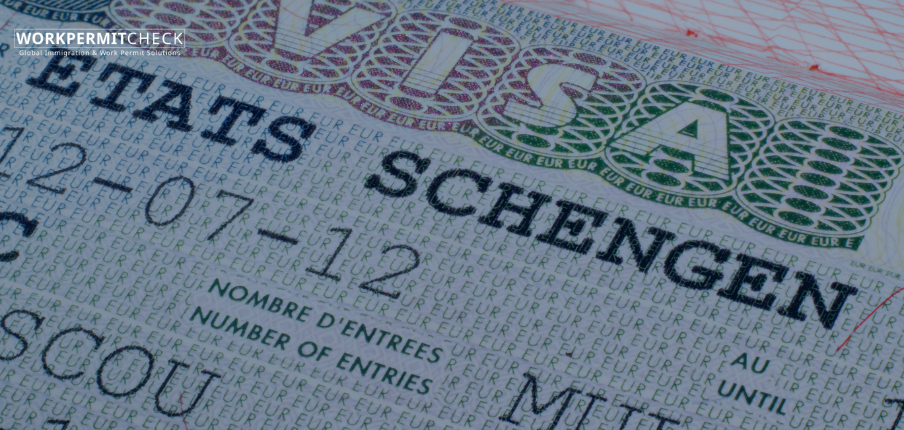With the rise of remote work and digital nomadism, many people wonder whether they need a work permit to legally work from abroad — especially when they’re not employed by a local company. The assumption that remote work “doesn’t count” as employment under immigration laws is common — but often incorrect. This post explores whether remote work is legal without a permit, and the implications of working remotely while staying in a foreign country.
What Is Remote Work in Legal Terms?
Remote work typically means performing employment duties or running a business online from a location outside your home country. Examples include:
-
Employees working for foreign companies
-
Freelancers or consultants serving international clients
-
Entrepreneurs running online businesses
While you're not engaging in the local labor market, you are still working, and this distinction matters under immigration law.
Is It Legal to Work Remotely Without a Permit?
It depends on the country. Most immigration systems distinguish between:
-
Tourism or short visits (often allowed on tourist visas)
-
Employment in the local economy (requires a work permit)
-
Remote work for foreign income (a legal gray area in many countries)
Let’s break this down.
1. Countries Where Remote Work Without a Permit Is Generally Not Allowed
Some countries treat any kind of work — even for a foreign employer — as “employment” and require a permit or appropriate visa:
-
Germany: Even remote work for a foreign company is not allowed on a tourist visa. You need a freelance visa or digital nomad-friendly permit.
-
Singapore: Technically requires an Employment Pass for any work, including remote.
-
Japan: Remote work is not permitted on a tourist visa. You’d need a proper work status.
-
United States: If you're visiting on a tourist visa or visa waiver, remote work — even for a non-U.S. employer — is considered unauthorized employment.
Bottom line: In these countries, remote work is not legal without the right visa.
2. Countries with Digital Nomad Visas or Permits
Several countries now officially allow remote work through digital nomad visas. These are designed for foreigners working online for non-local clients or employers.
Examples include:
-
Portugal: D7 Visa and Digital Nomad Visa
-
Estonia: Digital Nomad Visa
-
Croatia: Temporary residence for digital nomads
-
Barbados: Welcome Stamp
-
UAE: Remote Work Visa
-
Costa Rica: Rentista Visa or Digital Nomad Visa
These visas typically:
-
Do not require a local employer
-
Have a minimum income threshold
-
Allow legal residency for 6–24 months
So, in these countries, remote work is legal if you hold the appropriate visa.
3. Countries That Don’t Enforce Remote Work Restrictions Strictly
Some countries operate in a legal gray zone, where remote work isn’t officially addressed in visa rules, but enforcement is lax. Tourists staying for a few weeks and quietly working online often go unnoticed.
Examples include:
-
Mexico
-
Thailand
-
Indonesia (Bali)
-
Georgia
However, if you're earning money while physically present, you could be in violation of immigration rules. Staying too long or publicly advertising work may draw attention.
Risks of Working Remotely Without a Permit
Even if enforcement is rare, the risks include:
-
Fines or deportation
-
Visa cancellation
-
Blacklisting from future entry
-
Tax complications in both your home and host country
Tax Implications
Working abroad, even remotely, can trigger:
-
Tax residency in the host country
-
Obligations to file taxes locally
-
Double taxation unless covered by a tax treaty
If you're in one country for more than 183 days, many tax systems consider you a resident — with the obligation to pay income tax locally, even for foreign income.
How to Stay Legal While Working Remotely Abroad
-
Research visa options: Look for digital nomad or freelance visas.
-
Avoid working on tourist visas in strict countries.
-
Limit your stay to under 90 or 183 days if unsure of the rules.
-
Keep quiet about working remotely if the country doesn’t address it.
-
Consult immigration experts or tax professionals if staying long-term.
Conclusion
Remote work is not always legal without a permit, even if you’re not employed locally. While some countries tolerate it or offer special visas, others strictly enforce rules around employment and residency. To avoid legal and tax troubles, always check local laws — and when possible, apply for a visa that explicitly allows remote work.
May 3, 2025



















































































